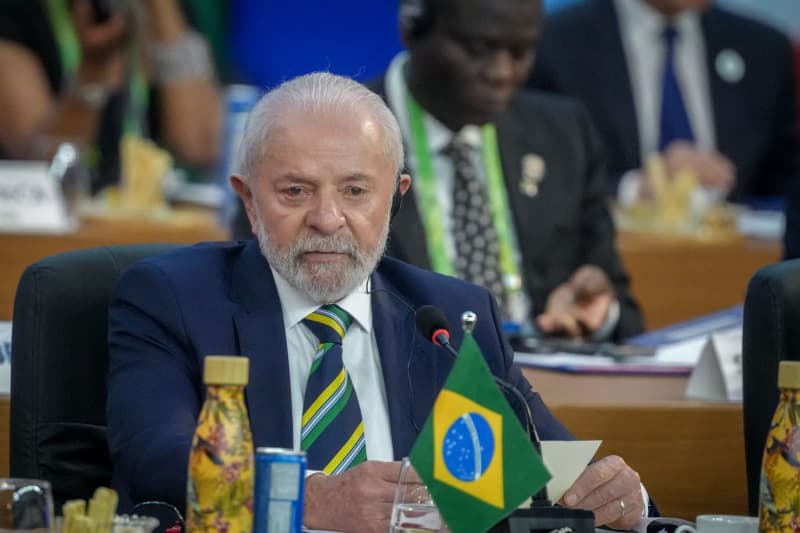At the G20 summit held in Rio de Janeiro, Brazilian President Luiz Inácio Lula da Silva initiated the Global Alliance against Hunger and Poverty, emphasizing that hunger and poverty result from political decisions rather than scarcity or natural causes. Lula argued that these social issues stem from systemic exclusion affecting significant portions of humanity. The launch of this initiative, supported by 81 countries, has become a pivotal agenda item during Brazil’s presidency of the G20, which convenes the largest global economies. In addition to addressing hunger, the summit will consider institutional reform, climate change measures, and ongoing conflicts, notably in Ukraine and the Middle East. Lula expressed his commitment to working collectively on food security, declaring it to be the legacy the group aspires to leave behind.
As part of the initiative to combat hunger, significant financial support has already been pledged, including a notable $25 billion commitment from the Inter-American Development Bank. Oxfam, an international nonprofit organization, has also advocated that G20 nations must increase public investments in small-scale agriculture to truly make an impact. This essential support aims to strengthen food security on a global scale, acknowledging the interdependence between agricultural development and the eradication of poverty. The European Union, represented by President Ursula von der Leyen, has also expressed its intent to participate in this vital initiative, signaling a unified approach among global leaders to tackle these pressing issues.
Lula’s vision for a reformed global order is also central to discussions at the summit, as he underscores the necessity for more robust multilateralism. He insisted that global institutions need to become more inclusive and representative, which is crucial for maintaining world stability and fostering peace. Acknowledging the historical exclusion from decision-making processes, Lula emphasized that the representation of diverse voices is essential to achieving a harmonious global governance structure. He firmly believes that this diversity is “the path to peace,” advocating that solutions should arise from collaborative dialogue that considers all perspectives.
Proactively addressing global changes, Lula cautioned against relying on crises, such as wars or economic emergencies, as catalysts for reforming the international order. He articulated that the future is leaning towards a multipolar world, demanding swift adjustments to the institutional frameworks that currently govern international relations. Lula’s push for overhaul centers on updating organizations that he criticizes as antiquated and inequitable. He targeted the UN Security Council, accusing it of a credibility crisis and called out institutions like the World Bank and the International Monetary Fund for their controversial involvement in the internal affairs of debtor nations, advocating for respect of sovereignty and the importance of local solutions.
These discussions resonate broadly with ongoing challenges the world faces today, as countries grapple with issues like food insecurity and economic instability exacerbated by climate change and geopolitical tensions. Lula’s platform is underscored by the belief that eliminating poverty and hunger is not an isolated endeavor but one that runs parallel to achieving peace and stability. By fostering cooperative strategies among G20 nations, the initiative may bridge the gap between economic goals and humanitarian needs, laying the groundwork for sustainable progress.
The outcomes anticipated from this summit hold the potential to reshape international collaborations significantly. The considerable funding commitments, as well as increased focus on sustainable agriculture, suggest a shifting paradigm where addressing social issues are prioritized alongside economic development. Lula’s call for renewed global cooperation reflects a broader recognition that lasting solutions to hunger and poverty require shared responsibility and actions that transcend borders. As Brazil embraces its leadership role within the G20, the emphasis on inclusive reform and concerted efforts to tackle these critical challenges may define not just Lula’s presidency but potentially the future trajectory of how the G20 approaches global issues.

